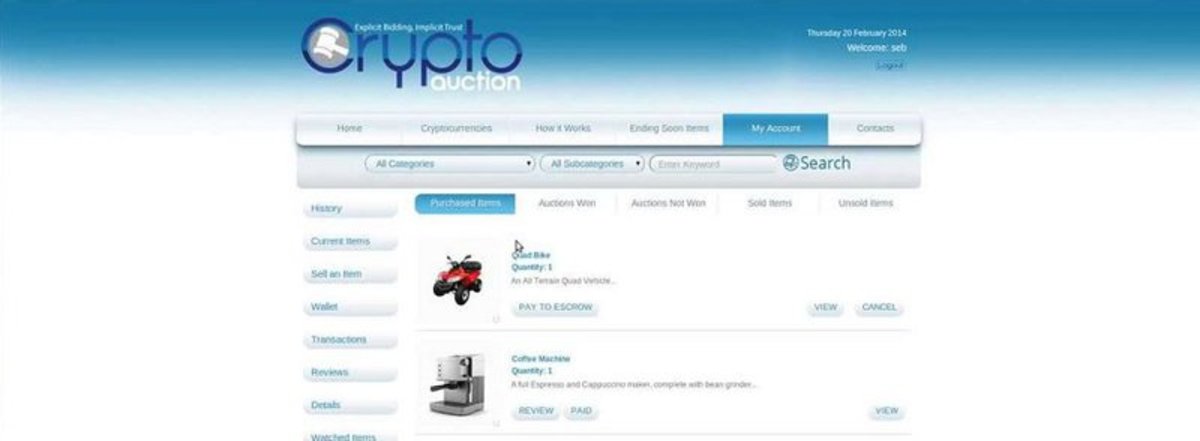
Aimed at becoming the ‘eBay for Bitcoin,’ Cryptoauction was launched by Daryl Cusack in November 2013. Since then, we in the vast crypto-community have witnessed a plethora of events that have shifted focus toward expanding security. Some say these recent happenings, like the theft of Bitcoin from Flexcoin and the saga of Mt. Gox, may symbolize the end.
However, these incidents have enabled continued growth in transaction and personal security, and new innovations within the Bitcoin network. As cryptocurrencies are widely adopted, these events will have to be addressed, which will lead to a payment network that is stronger than ever, stable and sustainable.
Why did Cryptoauction disappear?
Cryptoaution became increasingly focused on security since the November launch, and shortly after chose to take the site down shortly after launch. Registered users were notified of the situation and the company’s plan to ensure the success of the site, its users and auctions. Due to the events within the community that surrounded security risk, the company made a decision to implement a full multi-signature escrow system that supports Bitcoin, Litecoin, and Primecoin, whereby each party maintains a key for added payment security.
The company is currently planning to relaunch Cryptoauction later this week, and will provide users with a full multi-signature escrow service for all three supported currencies.
Advanced multi-signature escrow
To mitigate against eBay’s common ‘I did not receive my payment’ problem, Cryptoauction will employ a multi-signature escrow platform. The service will allow users to send and receive payment only when a product or service is received. These types of transactions are encoded within the protocol and will be completed after both the user and Cryptoauction finalizes the transaction via their unique key. This will allow for increased security in virtual currency transactions and eliminate a single point of failure.
In terms of fund security, the company has stated that it keeps as little Bitcoin, Litecoin and Primecoin online as possible, while also trying to minimize the time a user’s funds are held.
Security and adoption
The company believes that if the community moved toward a multi-signature approach where possible, it would decentralize control of funds and reduce the risk of a single point of failure, an issue that has risen in the past months. In order to provide additional transaction security, the virtual currency auction site will also implement other useful security measures such as strict two-factor authentication.
“This is extremely important if Bitcoin and Cryptocurrencies are going to compete in the mainstream. We have developed and implemented a complete and fully functioning multisignature escrow system to do just that. Hopefully others will follow suit,” a Cryptoauction spokesperson stated.
For Cryptoauction, there is a strong belief in driving mainstream adoption of cryptocurrencies by establishing a community focus of increased invulnerability, ensuring users that their private information remains protected when using virtual currencies like Bitcoin and Litecoin. Additionally, founder Daryl Cusack also worked with Maxcoin developers and recommended various RPC (Remote Procedure Call) features that will make coding multisignature transactions easier for developers to implement.
As Bitcoin and cryptocurrencies as a whole become widely adopted, the importance of security for both the individual and business will remain a high priority. Cryptoauction’s focus on this may lead the way toward establishing additional payment protocols that support the end goal: to bring virtual currencies mainstream for the common user.










